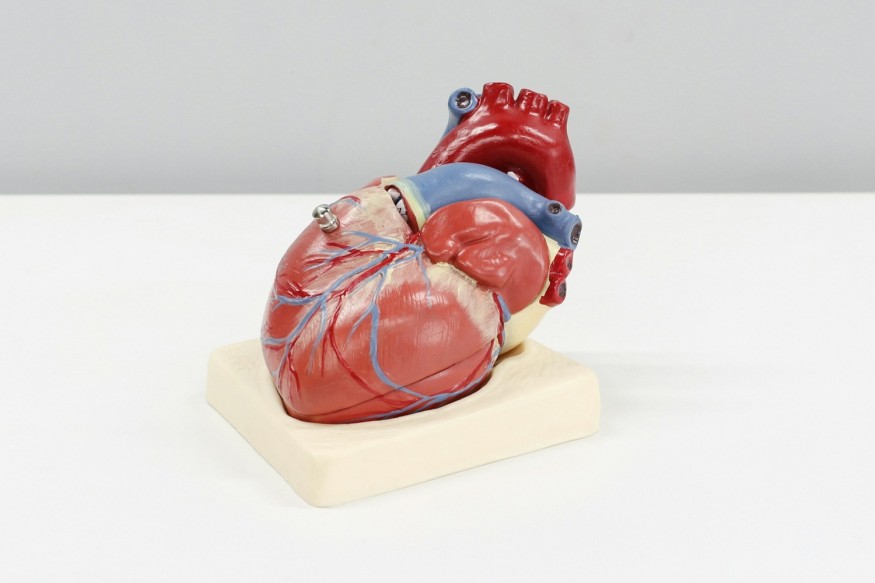High-Risk Health Issues & the Hispanic Community: What You Need to Know

As a broad demographic group, Hispanic Americans face many unique medical challenges. It likely comes as no surprise that access to healthcare is an issue that disproportionately affects the Hispanic community, given that Hispanic Americans are, on average, more likely to be of lower socioeconomic status, largely as a result of disparities in educational and employment opportunities. But there are also specific health conditions that are more likely to affect people of Hispanic descent in both prevalence and severity.
Whether they are related to genetics, cultural differences, or the result of socioeconomic disparities, individuals need to know what these conditions are and how they can be ameliorated. Understanding these factors is also important for medical science and students of ABSN online programs, as it can help researchers isolate the causes of these conditions and the factors that promote better or worse outcomes. To learn more, read on.
Obesity

Obesity rates are substantially higher among Hispanic adults compared to the general population. On average, roughly 1 in 3 American adults are overweight (30.7%), with 2 in 5 falling into the category of obesity (42.4%) and 1 in 11 being categorized as severely obese (9.2%). Among Hispanic Americans, those numbers jump to nearly 1 in 2 (44.8%) suffering from obesity; a lower number, 1 in 13 (7.9%), were likely to suffer from severe obesity, but amongst Hispanic women, the number jumps to 1 in 9 (11.5%).
This means that while Hispanic American men are less likely to suffer from severe obesity that might cause immediate danger to their lives at a younger age, Hispanic women are more prone to the condition.
Hispanic Americans are also more likely to suffer from diabetes. 11.7% of Hispanic Americans have the condition, as compared to 11.6% of the general population of the US, making Hispanic Americans roughly .1% more likely to suffer from diabetes. However, that number jumps substantially compared to non-Hispanic whites, only 6.9% of whom are diabetic.
Obesity is a serious health concern, and while it rarely leads to early death in and of itself, it is a major contributor to other conditions that impact Latinos disproportionately, including heart, liver, kidney, and respiratory conditions.
Cardiac Conditions

Interestingly enough, despite all of this, Hispanic Americans are substantially less likely to die of heart disease as compared to non-Hispanic white Americans. This might indicate that people with Hispanic genetics may have some protective genetic factors against heart disease. However, this may also be related to the higher mortality rate of heart disease amongst men as compared to women; given that Hispanic men are less likely to be obese as compared to the general population, but Hispanic women are more likely to be obese, this would suggest that women, rather than people of Hispanic descent—or perhaps even specifically Hispanic women—may possess some protective genetic factor.
Alas, confounding factors abound: some studies show that foreign-born Hispanics have a more favorable cardiometabolic profile compared to those born in the US. This could indicate that cultural or regional differences in diet may be a major contributing factor to the severity of heart disease. If foods found more commonly in the US (the usual suspects would be foods containing higher volumes of sugar, corn syrup, processed grains, processed meats, and other foods with higher glycemic index or saturated fat content) contribute disproportionately to heart disease, and a noticeable percentage of the Hispanic population is foreign-born—and therefore less likely to have high lifetime exposure to foods that are likely to contribute to heart disease.
At the end of the day, heart disease affects all demographic groups and should be taken very seriously.
Liver and Kidney Disease
Chronic liver disease is a major problem for Hispanic Americans—specifically Hispanic men. Liver disease is the seventh leading cause of death amongst US Hispanics and the fourth leading cause of death amongst middle-aged Hispanic men. Hispanic men and women alike suffer from chronic liver conditions at twice the rate of the non-Hispanic white population.
Liver cancer is a serious problem—especially for Hispanic men. While Hispanic men and women tend to have lower rates of cancer overall compared to the non-Hispanic white population of the US, Hispanic men are nearly twice as likely to suffer from liver cancer. They are also nearly twice as likely to die from the disease.
Fatty liver disease is also a major problem amongst Hispanics, but specifically amongst people of Mexican descent. Studies have revealed a genetic predisposition towards fatty liver disease, a precursor to cirrhosis, that is common in the Hispanic population, and Mexicans are even more prone. This leads to Hispanics in the US having an estimated 48% risk of fatty liver disease, as compared to a national average of 25%. Interestingly enough, people of Hispanic descent are less likely to develop cirrhosis than the average American. But other negative outcomes abound: fatty liver disease often leads to fatigue, loss of appetite, high cholesterol, and an increased likelihood of diabetes are all potential outcomes of fatty liver disease.
Asthma
While often innocuous and not particularly dangerous, asthma is a condition that causes many people substantial discomfort and can occasionally lead to serious disability or even death. Recent studies show that Hispanics suffer asthma at lower rates than the general population. However, the opposite is true for one specific group of Latinos: Puerto Ricans. People from Puerto Rico are over twice as likely to be diagnosed with asthma as compared to the general population.
Some studies also indicate that US-born Hispanics have a genetic profile that is unfavorable concerning asthma-related health outcomes, demonstrating a higher presence of metabolites that are generally associated with a higher risk of severe asthma. With over 3,500 deaths annually in the US caused directly by asthma, this is a serious health concern for anyone with the condition, especially Puerto Ricans and other US-born Hispanics.
Healthcare

A particular challenge for the Hispanic community in the US is access to healthcare. As a result of lower average socioeconomic status, Hispanic Americans have an overall substantially worse level of access to healthcare and have generally worse outcomes when interacting with the US healthcare system. This is a serious issue, considering that Hispanic Americans report working more frequently in jobs that pose a major risk to their physical health and well-being.
While few Hispanics report that they feel that they are provided with a lower standard of care compared to other races, and many report feeling that health outcomes for Hispanics are improving, the numbers don't lie: Hispanics are more prone to lower birthweights, have lower proportion of enrollment in health insurance, are twice as likely to live in poverty, had noticeably higher rates of hospitalization and death due to COVID-19, have worse outcomes with diabetes, and are less likely to receive treatment for mental health issues.
There is one noticeable upside for the Hispanic population: despite the many challenges they face, Hispanic Americans, on average, live one year longer than their non-Hispanic white counterparts. Considering the systemic and economic challenges they face, this might come as a surprise. Hispanic Americans nonetheless face many unique challenges, and the Hispanic community, medical practitioners, and medical researchers need to be aware of these disparities to ensure that they are addressed at both an individual and systemic level.
Subscribe to Latin Post!
Sign up for our free newsletter for the Latest coverage!
© 2025 Latin Post. All rights reserved. Do not reproduce without permission.















